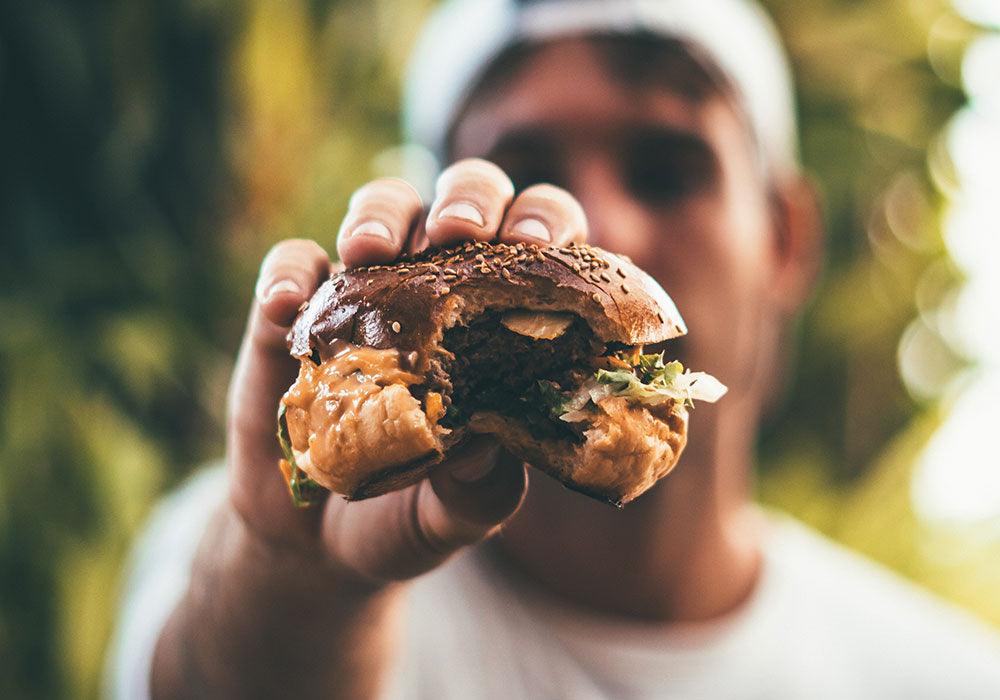Introduction to Appetite Regulation with CBD
Ever heard of CBD and wondered how it can affect your appetite? Unlike its cousin THC, from the same cannabis plant, known for inducing cravings, CBD plays a different role in our eating habits.
What is CBD?
CBD stands for cannabidiol, a substance found in the cannabis plant. But worry not, CBD doesn't cause the "high" like THC. Instead, it offers a range of health benefits without the typical psychoactive effects of cannabis.

How Does CBD Affect Appetite?
CBD interacts with a system in our body known as the endocannabinoid system (ECS). This system plays a crucial role in regulating our appetite, sleep, mood, and more. CBD helps balance the ECS, which in turn can influence our appetite by reducing stress.
Can CBD Help Regulate Appetite?
Yes, and here's how: Instead of directly increasing hunger, CBD can help normalize it. If you tend to overeat, CBD might help you achieve an earlier feeling of satiety. CBD helps regulate appetite by balancing the body's endocannabinoid system, leading to more or less hunger as needed to achieve a healthy balance.
Good for the Stomach
CBD can also help reduce nausea, which is especially useful if you're not feeling well or undergoing certain medical treatments. By helping you feel less nauseous, it can indirectly improve your appetite.

CBD and the Enhancement of Taste: An Appetite Stimulant?
Having trouble enjoying the full flavor of your meals? CBD, known for its diverse health benefits, might also play a surprising role in enhancing taste sensation. This could be particularly interesting for those experiencing reduced taste perception due to health conditions or treatments.
Anti-inflammatory Effect
CBD is known for its anti-inflammatory properties. Inflammation can have various causes and can affect the mouth and throat area, which in turn can impair taste. By reducing inflammation, CBD can help improve taste, making food more enjoyable again.
More Joy in Eating
When food tastes better, naturally, it also increases the enjoyment of eating. This can be especially important for individuals struggling with appetite loss or taste alterations to start eating regularly and balanced again.

Support in Recovery
For people recovering from illnesses or surgeries, the improved taste sensation through CBD products can make a big difference. A better perception of flavors can help stimulate appetite and promote food intake, which in turn supports recovery.
CBD for a Balanced Appetite: No Direct Appetite Stimulation
When it comes to cannabis products, many immediately think of the famous "munchies" effect associated with THC in cannabis. But did you know that CBD, another cannabinoid from the same plant, acts quite differently, especially regarding our appetite? Here's a look at how CBD can help you balance your appetite without directly leading to more hunger.
CBD vs. THC: Different Effects on Appetite
While THC is known for increasing appetite, CBD plays a different role. It doesn't cause sudden cravings. Instead, CBD can help normalize and regulate eating behavior. This is particularly useful for people looking to better control their appetite.
How CBD Regulates Appetite
CBD interacts with the body's endocannabinoid system (ECS), a complex network responsible, among other things, for regulating our appetite. Through this interaction, CBD can help dampen excessive hunger feelings, contributing to a more balanced eating behavior.
Who is CBD Suitable For?
CBD can be a good choice for individuals who:
- Want to regulate their appetite without the psychoactive effects of THC.
- Are looking for a natural method to normalize their eating behavior.
- Struggle with excessive eating or lack of appetite and seek balance.
No Fear of "Munchies"
With CBD, you don't have to worry about suddenly being plagued by uncontrollable hunger pangs. This "munchies" effect is produced by other cannabinoids. This makes it an attractive option for those looking for the health benefits of cannabinoids but want to keep their appetite in check.

CBD Against Nausea: A Gentle Path to Improvement
CBD, also known as cannabidiol, is becoming increasingly popular for its ability to alleviate nausea and vomiting. This is particularly interesting for individuals undergoing chemotherapy or who frequently struggle with nausea for other reasons.
How Does it Work?
CBD operates in the body through the endocannabinoid system (ECS), which plays a vital role in regulating nausea. Research shows that CBD activates certain receptors in the brain that help us feel less nauseous. A key player here is serotonin, a substance that influences our mood, anxiety, and yes, nausea.
Assistance in Chemotherapy
Chemotherapy is tough, and one of the hardest side effects is nausea. CBD has emerged as a promising option to alleviate this type of nausea. It's like a beacon of hope for many patients looking for a gentler alternative to the strong medications typically prescribed.
A Boost to Quality of Life
Nausea can make everyday life really hard. CBD can be a great help here and significantly improve quality of life – no matter if the nausea is caused by an illness, a treatment, or something else. Simply feeling better can make a huge difference.
Safe and Tolerable
Compared to many anti-nausea medications, CBD has fewer side effects. It's considered safe and well-tolerated, making it a great option for anyone looking for a natural alternative.

CBD: Hope in Treating Eating Disorders
For many people, eating disorders like anorexia are a daily challenge that affects not only the body but also the soul. The search for effective treatment options is often long and difficult. Enter CBD, a natural helper showing signs of supporting individuals with eating disorders.
Reducing Anxiety
One of the reasons CBD is so promising lies in its ability to reduce anxiety levels. Anxiety and stress often play a big role in eating disorders. By helping to ease these feelings, CBD can make it easier for sufferers to focus on recovery and healthy eating habits.
Stimulating Appetite
While CBD doesn't directly increase appetite like THC, there are indications that it can help normalize appetite. For individuals with anorexia, this could mean that CBD helps them develop a natural feeling of hunger and view food more positively.
A Natural Remedy
Unlike some medications used to treat eating disorders, CBD has fewer side effects and is generally regarded as safe. This makes it an attractive option for those seeking more natural support.
CBD and Appetite: Practically Regulating Appetite in Everyday Life
Remember, CBD products work best when part of a healthy lifestyle. A balanced diet and regular exercise are essential for achieving the best results. CBD should be seen as a supplement to these measures, not a replacement. Here's how you can integrate CBD into your daily routine for appetite regulation.
Setting Your Goals
Before you start, it's important to determine what you want to achieve with CBD intake. Are you looking for a way to increase your appetite, or do you want to curb uncontrolled eating? Clarity about your goals helps make the use of CBD more effective.
Starting with a Low Dose
The key to successful application of CBD products lies in starting with a low dose. Begin with about 5 to 10 mg per day and observe how your body reacts. Individual responses to CBD can vary, so it's important to start with a low dose and gradually adjust it as needed.
Integrating into the Daily Routine
CBD oil is particularly suitable for beginners as it allows for easy dosing. By activating specific receptors, CBD products can help reduce the feeling of stress. Consider what time of day taking CBD makes the most sense for you – in the morning to support a balanced start to the day or in the evening to avoid nighttime eating. Integrate the oil into your routine by taking it directly under the tongue or adding it to your favorite drink or meal.
Observation and Adjustment
Keep a diary to document your experiences with CBD. Note the dosage, the time of day you take it, and any changes in your appetite behavior or general well-being.



























